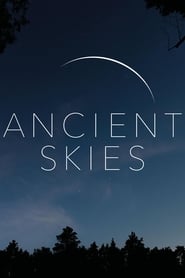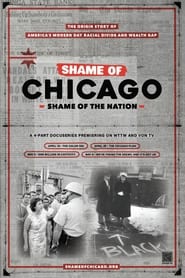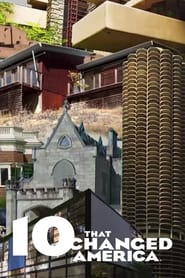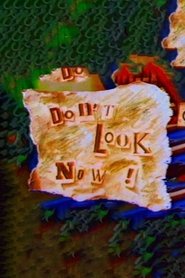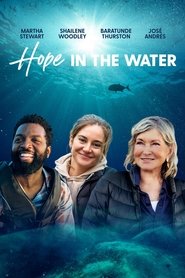Pbs TV Series - Page 26
-
Autumnwatch New England
2018
star 8BBC host Chris Packham and wildlife cinematographer Bob Poole are joined by travel journalist Samantha Brown for this special PBS edition of the first-ever season of Autumnwatch produced in America. This series in three parts travels across the colorful landscapes of New England, meeting a cast of unforgettable wildlife characters, and experiencing some of the best autumn has to offer, including leaf gazing, pumpkin carving and cranberry harvesting. Local experts in food, wildlife, music, literature and history join the trio of hosts each night to showcase characteristics special to New England. -
Ancient Skies
2019
star 7.3With breath-taking CGI, beautiful landscape footage and some of the world's most important astronomical artifacts, Ancient Skies looks at the cosmos through the eyes of our ancestors, charting our changing views of the cosmos throughout history. -
The Pacific Century
1992
The Pacific Century
1992
The Pacific Century was a 1992 PBS Emmy Award winning ten part documentary series narrated by Peter Coyote about the rise of the Pacific Rim economies. Alex Gibney was the writer for the series, and Frank Gibney, his father, wrote the companion trade book, The Pacific Century: America and Asia in a Changing World. The companion college telecourse, Pacific Century: The Emergence of Modern Pacific Asia, was written and edited by Mark Borthwick. The series was a co-production of the Pacific Basin Institute and KCTS-TV in Seattle. Principle funding was provided by the Annenberg Foundation. -
Shame of Chicago, Shame of the Nation
2024
How Chicago and its suburbs helped devise the nation’s most sweeping system of racially segregated communities, and how these policies diminished the lives of generations of Black families, creating the vast racial wealth gap that persists to this day. -
Earth Revealed: Introductory Geology
0000
Earth Revealed: Introductory Geology is a 26-part video instructional series covering the processes and properties of the physical Earth, with particular attention given to the scientific theories underlying the geological principles. The telecourse was produced by Intelecom and the Southern California Consortium, funded by the Annenberg/CPB Project, and first aired on PBS in 1992. All 26 episodes are hosted by Dr. James L. Sadd, professor Environmental Science at Occidental College in Los Angeles. -
Reporting America at War
2003
Explores the role of American journalists in the pivotal conflicts of the 20th century and beyond. From San Juan Hill to the beaches of Normandy, from the jungles of Vietnam to the Persian Gulf, reporters who witnessed and wrote the news from the battlefield share dramatic and surprising stories. Examines the challenges of frontline reporting and illuminates the role of the correspondent in shaping the way wars have been remembered and understood. -
SciTech Now
2014
SciTech Now
2014
Capturing the latest breakthroughs in science, technology and innovation. With anchor Hari Sreenivasan, we check out the hottest gadgets, meet the innovators creating the startups of tomorrow and map out the mysteries of the scientific world. -
Savage Skies
1996
Savage Skies
1996
With respect and wonder and a sense of poetry, “Savage Skies” looks at the Earth’s weather. -
Wall Street Week
1972
Wall Street Week
1972
A revival of the iconic program originally hosted by Louis Rukeyser, Wall Street Week is focused on educating and empowering long-term investors. With unrivalled access to the biggest names and critical insights on the biggest stories, Wall Street Week is the show that sets the agenda for the week ahead. -
Amped & Wired
2015
Amped & Wired
2015
Join Mississippi Public Broadcasting for live musical performances that bring you up-close and personal with new, undiscovered musical acts. -
The Arabs: A Living History
1979
A series of ten one-hour documentaries which explores Arab history, culture and society from within through the lives and opinions of Arabs today. -
10 That Changed America
2013
Host Geoffrey Baer takes viewers across the country to the places that changed America. -
Up and Coming
1980
Up and Coming
1980
Up and Coming is an American television drama series which aired on Public Broadcasting Service during the 1980-1981 season. -
Don't Look Now!
1983
star 7.5Don't Look Now is an American national children's sketch comedy show produced for PBS by WGBH-TV in Boston, Massachusetts, and created by Geoffrey Darby and Roger Price. It is a clone of their program for CTV and Nickelodeon, You Can't Do That on Television. -
Flavor of Poland
2020
Flavor of Poland
2020
Flavor of Poland is a culinary-travel television series which will, for the first time in the history of American Public Television, present the country of Poland to American TV viewers like they’ve never seen it before! Having crossed thousands of miles across Poland, visiting over 30 cities, towns and villages and exploring the country’s most majestic landscapes from north to south and east to west, the Flavor of Poland team met with locals, historic, cultural and culinary experts, capturing the most beautiful aspects of Poland on film to bring back to the U.S. and share them all with American TV viewers. -
Hope in the Water
2024
Hope in the Water
2024
Explores the groundbreaking work of dedicated fishers, aqua farmers, and scientists who are attempting what was once thought impossible: harvesting aquatic species to feed our growing planet while saving our oceans. -
New York Wine and Table
2008
New York Wine & Table explores culinary journeys through New York’s regions in a unique television show featuring food, wine, agriculture, restaurants, people and landscapes. The series is hosted by nationally known television lifestyle host Susan Hunt. In this series, Susan travels from Lake Erie’s grape region to Long Island, from the Hudson River Valley to the Thousand Islands to Niagara Falls. In each episode she talks with winemakers, farmers, and restaurateurs who produce some of the finest wines and foods in the world. -
SW
2007
-
Refuge
2011
Refuge
2011
This documentary series reveals the importance of our National Wildlife Refuge system, unique to the United States, and the hard work entailed in animal and habitat conservation. The system maintains millions of acres of wilderness and wetlands for endangered species and those animals that thrive in numbers. Refuge brings this beauty to you in spectacular high definition videography.

